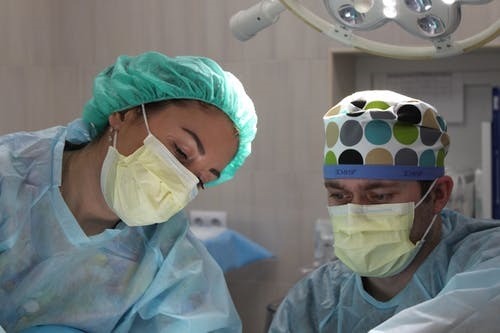Every year, scores of people fall victim to injuries resulting from medical malpractice. As a matter of fact, reports indicate that medical negligence is a major cause of death in the United States. If you or a loved one has suffered injuries or harm in the hands of a doctor, you should never stay quiet about it. While not all medical injuries lead to death, some of them can have debilitating effects on your life emotionally, professionally, and financially. If you believe that your doctor hurt you after a procedure, diagnosis, or prescription, you can always take action to avoid becoming the next unfortunate statistic. Here’s what you can do about it.
Understand What Medical Malpractice Means
Every healthcare provider must ensure due diligence whenever handling a patient. During diagnosis, medical procedures, and any part of treatment, they are required to follow protocol, which is referred to as ‘standard of care’. Sometimes the standard of care is not clearly defined and is often circumstantial. Simply put, the doctor is required to act reasonably and prudently, just like another medical provider would have acted in similar circumstances. It becomes medical malpractice if negligence can be established, and you can sue such a health practitioner in a court of law for compensation for the damages suffered.
Hire a Medical Malpractice Attorney
After being prescribed the wrong medication, misdiagnosed, or mishandled in a medical facility, a lot could go wrong. Apart from physical pain and suffering, you could suffer financial losses from increased medical costs, lost income, disability, and so forth. But as you might have established from the definition above, medical malpractice cases can be tricky to navigate on your own. As the legal gurus at https://www.curcio-law.com/practice-areas/medical-malpractice/ put it, these cases are often complex and difficult to prove. This is especially because medical providers will only be held liable if an apparent deviation from the standard of care can be proved before the court. Some healthcare providers will argue that the harm resulted from unavoidable or known medical complications resulting from the procedure or condition being treated. This is why you need an experienced legal representative to guide you through the entire process.
Get a Second Opinion
Getting a second opinion from a different medical practitioner can help in many ways. For instance, it can help confirm or reaffirm a diagnosis. It can also help ensure you are getting the right treatment and that the first doctor isn’t just suggesting an expensive procedure for their own benefit. Most importantly, it can also help prove negligence in a medical malpractice case. This is because, in most cases of medical malpractice, the judge and the jury are highly likely to request expert testimony. The doctor who provided the second opinion could testify in your case, and help prove medical negligence, thus increasing your chances of getting compensated for your claims. If you didn’t get a second opinion on your own, your legal team can help you get a medical expert who may help prove that indeed, the first doctor violated the standard of care.
Meet the Deadlines: Statutes of Limitation
There are limitations as to how long one may take before filing a medical malpractice lawsuit after suffering injuries. The lawsuit may be permanently barred if you don’t file your case within the required timeframe. The other huge challenge is that the deadlines for medical malpractice suits may vary from one state to the other. This is all the more reason to talk to a medical malpractice attorney as soon as you realize you were hurt by a negligent doctor.
Common Cases of Medical Negligence
As hinted earlier, medical malpractice cases not only affect doctors but other healthcare professionals as well. These may include dentists, nurses, midwives, and even healthcare facilities. They can manifest in many forms and can stem out of a wide range of situations. Some common scenarios include the following:
- Errors in surgery
- Misdiagnosis
- ER errors
- Wrong prescriptions or dosage
- Errors in radiology
- Birth injuries
- Bowel injuries
- Anesthesia injuries
- Improper patient care
The last thing anyone would want is to visit a healthcare provider’s office, only to come out with bigger problems after treatment. While some of these problems could stem from known medical complications, a significant measure of them may arise from pure medical negligence. It is always best to take action as soon as you realize you’ve been hurt by a health care provider. The above are just a few tips on how to get help after being injured by a doctor.


